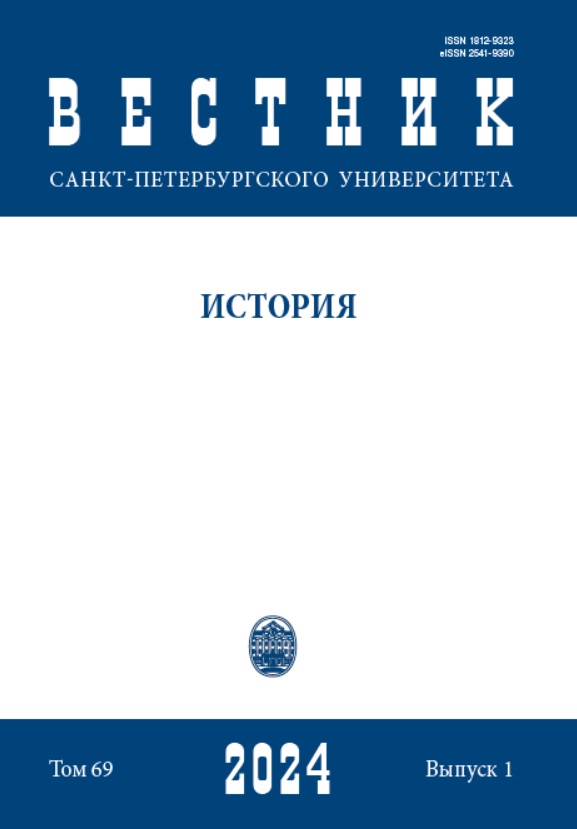Emancipation Reform in Pavlovskoe Estate of Grand Duke Konstantin Nikolaevich
DOI:
https://doi.org/10.21638/spbu02.2024.104Abstract
The article examines the process of emancipation of peasants and redemption operation in the estate of Grand Duke Konstantin Nikolayevich, located between Tsarskoe Selo and Pavlovsk. The article reveals economic situation in Finnish villages and Fedorovskii Posad that were part of the estate. The authors consider the content and peculiarities of the charters and
redemption documents for these settlements, which are kept in the Russian State Historical Archive (RGSH). The views of Konstantin Nikolaevich, who headed the Main Committee on Peasant Affairs and the Organization of the Rural Estate, on the rules of emancipation of peasants in the royal estates are analysed. The article studies the arguments of the ministers
M. N. Murav’ev and V. F. Adlerberg, who disagreed with the proposal of Konstantin Nikolaevich to liberate peasants from the Pavlovskoje estates on the basis of the Provisions of February 19, 1861. The authors conclude that the conditions of emancipation of the peasants in Pavlovskoje estate, as well as the pre-reform condition of the peasant economy, were markedly more favorable than those of the peasants in other estates of the Tsarskoselskii district. The peasants signed the charter deeds offered to them, but were in no hurry to switch over to the buyout. The delay in carrying out the redemption operation in the estate was caused by the peasants’ unwillingness to immediately switch to redemption on the terms less favorable to them offered by the owner. It was not until the early 1880s, after the reduction of redemption payments, that mandatory redemption operations were concluded.
Keywords:
Grand Duke Konstantin Nikolaevich, Pavlovskoe estate, Emancipation reform of 1861, redemption operation
Downloads
References
Downloads
Published
How to Cite
Issue
Section
License
Articles of "Vestnik of Saint Petersburg University. History" are open access distributed under the terms of the License Agreement with Saint Petersburg State University, which permits to the authors unrestricted distribution and self-archiving free of charge.





